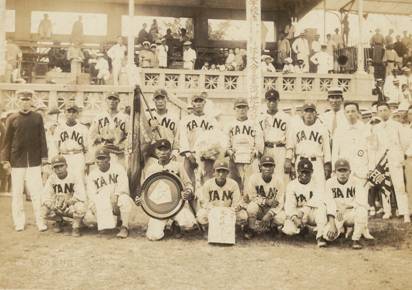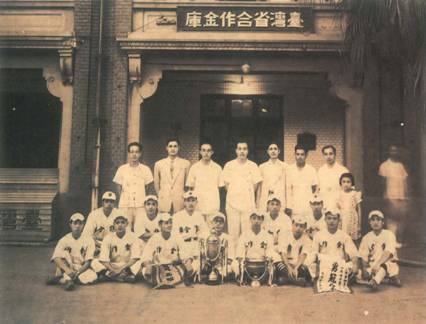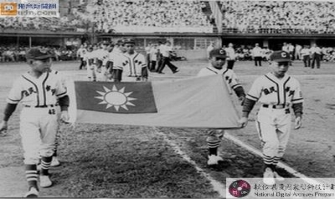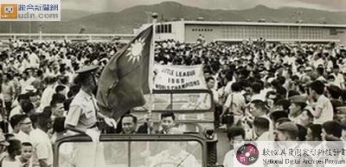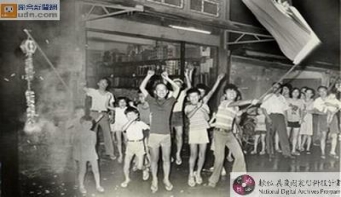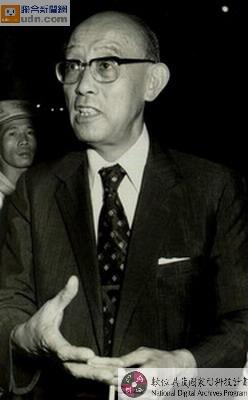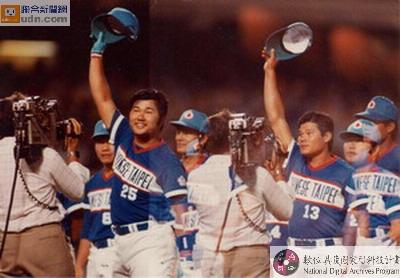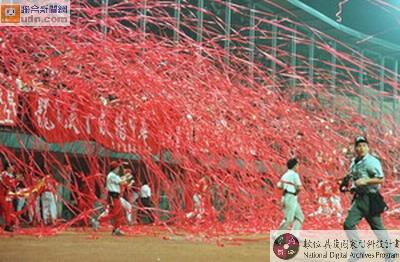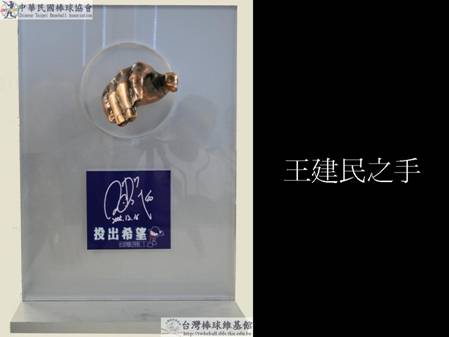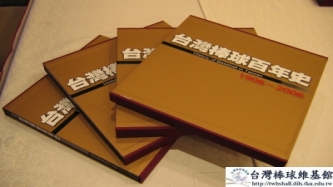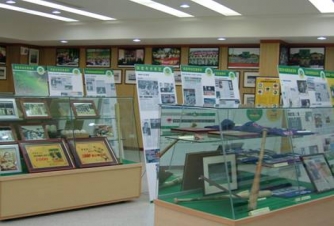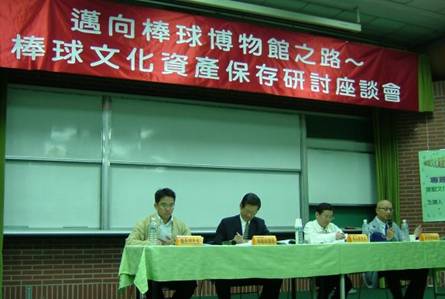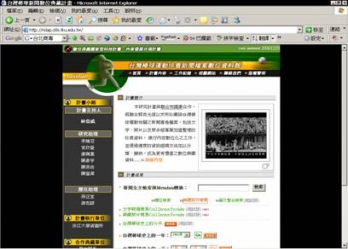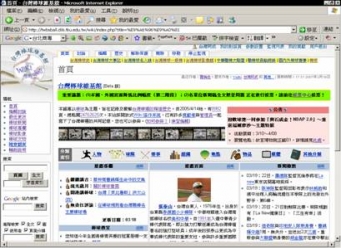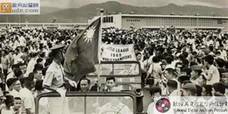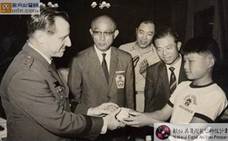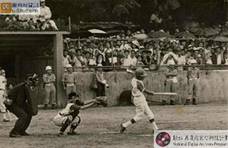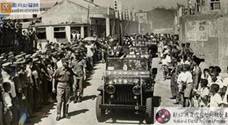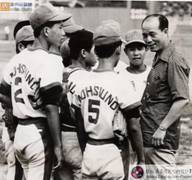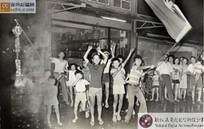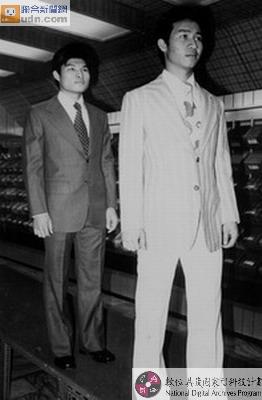TELDAP Collections
| 101 of Taiwan's Baseball |
|
Baseball can be called Taiwan's national sport. The first official baseball team was formed in 1906 by the Middle Sector of the Taiwan Governor-General's National Language School (today's Jianguo Senior High School), and the first organized baseball game was played by this team and the baseball team of the Normal School of the Taiwan Governor-General's National Language School (today's Taipei Municipal University of Education). Because of this, 1906 is recognized as the first year of Taiwan baseball (although numerous unofficial teams and games had been formed and played before this). If we count from 1906, the 101 year history of Taiwan baseball is just as majestic as the Taipei 101. However, the ups and downs of these past hundred years almost represent a miniature history of Taiwan. Called “Yakyu”, or “field ball” by the Japanese, baseball came with them when they colonized Taiwan. The sport at this stage had strong colonial colors. Taipei became the source of Taiwan's baseball movement, just as it had become the center hub of Taiwan's political and economic life. After the formation of baseball clubs at the National Language School, Cheng Yuan School (today's Cheng Yuan Senior High School), Taipei Industrial School (today's Taipei University of Technology) and Taipei Commercial School (today's National Taipei College of Business), Taipei became the powerhouse of baseball in Taiwan. This trend first extended to southern Taiwan before entering central and eastern Taiwan. From 1906 through the mid 1920s, Taiwan's baseball teams consisted mostly of Japanese players. Taiwanese players didn't become actively involved in the sport until the establishment of “Neng-Gao Club” in the mid 1920s and the “Kano Baseball Team” in the early 1930s. The seeds of baseball were firmly sowed in Taiwanese soil by this time. The Kano Baseball Team, which finished second in the 1931 Koshien tournament, became a symbol of racial integration as its members including Japanese, Taiwanese aboriginal and Han people.
After Taiwan's liberation from Japan, from 1940s to 1960s, the gradual reawakening of the economy allowed for many amateur baseball teams to be established and baseball in Taiwan entered a phase of fierce competition. During the period of material destitution, all sorts of official contests were held with great fanfare; making baseball a major recreational activity. Amateur adult baseball was the norm during this stage, and baseball teams belonging to government and civilian institutions (for example Taipower, Railway Administration, Wine and Tobacco Monopoly), banks (like Cooperative Bank) and the armed forces were made up of employees with a passion for baseball. Taipower in the south (Picture 2, top left), Cooperative Bank in the north (Picture 3, bottom left) were two very important amateur teams during the initial years after the war. (Pictures supplied by Mr. Hsieh Shi-Yuan) In 1970s, as Taiwan's economy soared amidst depressing setbacks in the political and diplomatic arenas, the Japanese-defeating Red Leaves and the world champion Golden Dragons gave the Taiwanese something they could be proud of. After Taiwan's withdrawal from the United Nations in 1971, the “Tri-Champions” became an object of national pursuit; this reflected the patriotism of the age. People would crawl from their beds in the wee hours of the day to watch the young players fight for glory with their bats and gloves. When teams from Taiwan won, the streets of Taiwan would be filled with a frenzy of celebrations, and the young athletes would be treated as national heroes on their return.
The man behind the development of baseball during this time was the late chairman of the Baseball Association, Mr. Hsieh Guo-Cheng. It was through his efforts that the Golden Dragon Junior Baseball Team managed to compete in the world championships in Williamsport in 1969. Hsieh Guo-Cheng is remembered as the father of baseball in Taiwan due to his life-long efforts to advance the sport at both the adult and youth level.
During the Tri-Champions frenzy, junior and youth baseball players carried with them a solemn national responsibility, and all young athletes had their goal set on winning gold abroad. Unfortunately, not all teams won honorably. Some teams would secretly draft overage players, or make unauthorized substitutions. With society placing such pressures on winning at all costs, the effects were not always beneficial on the young players. While some continued baseball careers, stemming from the fame gained as youngsters, others were unable to reach their full potential or even suffering tragically young deaths. From 1980 to 1990, the efforts made in Taiwanese baseball finally paid off. After many years absent from the international arena due to politics, Taiwanese adult baseball finally overcame political hurdles under the efforts of then chairman of the Baseball Association, Yen Hsiao-Chang. Taiwan began participating in international competitions under the name Chinese Taipei and had spectacular results. Taiwanese adult baseball was finally recognized internationally, and Yen Hsiao-Chang is credited as being the “Father of Adult Baseball”.
Although the Taiwanese adult baseball team only finished fourth behind South Korea, Japan and the US in the 1982 World Championship, with six wins and three losses, they made a crucial first step back onto the international stage. The year 1983 was one for the record books. In the 1983 Asian Championship, the Taiwanese team not only came in first alongside South Korea and Japan with five wins and two losses, but also defeated Japan to qualify for the Olympics in an extended match. Chinese Taipei finished third, with an overwhelming 13-1 shock win over the formidable champion Cuba in the Intercontinental Cup. During the 23rd Olympics held in Los Angeles in August, Chinese Taipei won the bronze medal. In the World Championship of the same year, Chinese Taipei finished second, defeating Cuba once again. In the 1986 World Championship in the Netherlands, Chinese Taipei came home with the bronze medal, beating the winning Cuba team. This victory established Chinese Taipei as one of the five greatest teams in the world. Chinese Taipei won the 1987 Asian Championship, and secured a place in the Olympics in the following year. Unfortunately, Chinese Taipei suffered three consecutive defeats in the group stage and was eliminated from medal contention during the 1988 Olympics in Seoul. In 1991, Chinese Taipei won silver in the Asian Championship. And in the following year, Chinese Taipei won silver in the Barcelona Olympics During this period, the Chinese Taipei Adult Baseball Team gained countless honors at home and abroad. These elite players were mostly trained as junior and youth athletes. However, professional baseball had not yet taken hold in Taiwan, as many national team members took their careers to Japan, creating a crisis at home.
After 1990, professional baseball took hold in Taiwan, pushing baseball into a new era. The first season of Taiwanese professional baseball began on March 17, 1990, and Taiwan became the third country in Asia to have a professional baseball league, after Japan and South Korea. In the years following, players drew larger incomes, lived better lives, and had more motivation on the field. The social status of baseball players also rose, with the best players enjoying fame rivaling that of movie stars. People swarmed into ball parks to watch games, and baseball fever once again engulfed the island. However, in 1996 a gambling scandal scarred baseball's reputation as dozens of players indicted. This plunged Taiwanese professional baseball into a dark age. Disappointed fans stopped coming to games, the management of ball clubs were in the midst of a severe crisis. Later the same year, the Taiwan Major League was founded, and although things seemed to look bright for Taiwanese baseball, competition between two leagues brought the rise of baseball to a standstill. Not until the two leagues combined in 2003 to form the Chinese Professional Baseball League, and Chinese Taipei won a place in the Olympics in 2004, did fortunes turn for baseball.
This new generation of baseball players has proven themselves not only on the field in Taiwan, but many of them have also played in the Japanese and American major leagues as well, writing a new page in Taiwanese baseball heritage. Near the end of 2006, just as baseball in Taiwan was to celebrate its 101st anniversary, Chien-Ming Wang won the title of most wins in Major League Baseball in the US, and the Taiwan national team won first, second and third places in the Asian Games, Asian Professional Games and Intercontinental Cup respectively. Just like the Taipei 101 tower, Taiwanese baseball reached a pinnacle in its 101st year. Nationwide baseball fever proves it's now firmly rooted as a part of Taiwanese culture.
In historian Hsieh Shi-Yuan's words, “Baseball for the Taiwanese is more than just a recreational sport; it has become a symbol of honor that bridges race, gender and age. This history, created by the connection of countless honors, not only belongs to fans of baseball, but is also a part of Taiwanese collective memory, and is a way of understanding and identifying with Taiwan's communal history.” Over the past hundred years, new generations of elite players have endlessly succeeded older generations, together writing an epic history of perseverance for the best, both at home and abroad. However, baseball critic Tseng Wen-Cheng has said, “Taiwan is a place where baseball is developed but not recorded.” This is a great regret of baseball in Taiwan. Fortunately, the concept of cultural preservation has recently begun to rise, and many have begun to document Taiwan's baseball culture. Many books and non-books have been published within the past two years, including the eye-catching “Taiwan Baseball Century Documentary Film” by the Public Television Service in 2006. In addition, numerous websites and blogs have documented the history of baseball in Taiwan. The websites of the Sports Affairs Council of the Executive Yuan, Chinese Professional Baseball League, Chinese Taipei Baseball Association, and the internet portal Yam all hold vast amounts of information on baseball history. The government and numerous civilian organizations have also set up baseball museums, and the Sports Affairs Council organized a seminar in November of 2006 on the subject of the preservation of baseball culture. As for the academic sector, the Department of Information and Library Science of Tamkang University, under the support of the National Digital Archives Program (NDAP), is currently pursuing a plan to establish a digital archive of treasured news records about Taiwan baseball, and the offspring project of the wiki-based Taiwan Baseball Wiki. It is our sincere hope that the preservation of Taiwan's baseball culture will continue on for the years to come.
台灣棒球運動珍貴新聞檔案數位資料館之建置 林信成 101 of Taiwan Baseball Collections
Golden Dragon Baseball Team returns with victory
Golden Dragon Baseball Team returns with victory.
Chen Hong-Pei, the captain of Golden Dragon Baseball Team, sends a signed ball to Major General Richard G. Ciccolella as a gift.
Chen Hong-Pei, the captain of Golden Dragon Baseball Team, sends a signed ball to Major General Richard G. Ciccolella as a gift.
Golden Dragon Baseball Team
Golden Dragon Baseball Team goes to Kinmen to visit front line troops after winning the Little League World Championship in Williamsport.
Tour Manager of the Kaohsiung city Li-de Team Wang Yu-yun
Li-de Team successfully defends champion title
Chen Hong-pei and Tsai Song-hui serve as guest models
First generation Golden Dragon players Chen Hong-pei and Yu Hong-kai enjoy the company of Li-de Team youth players
|






